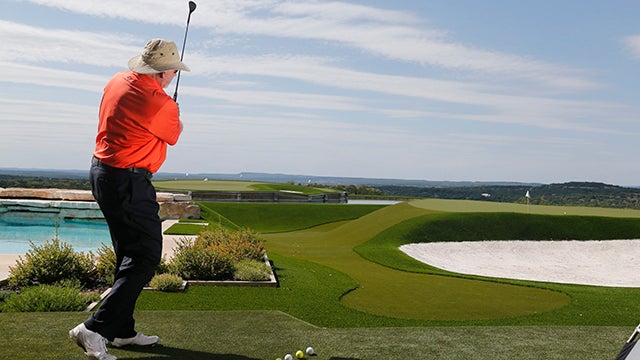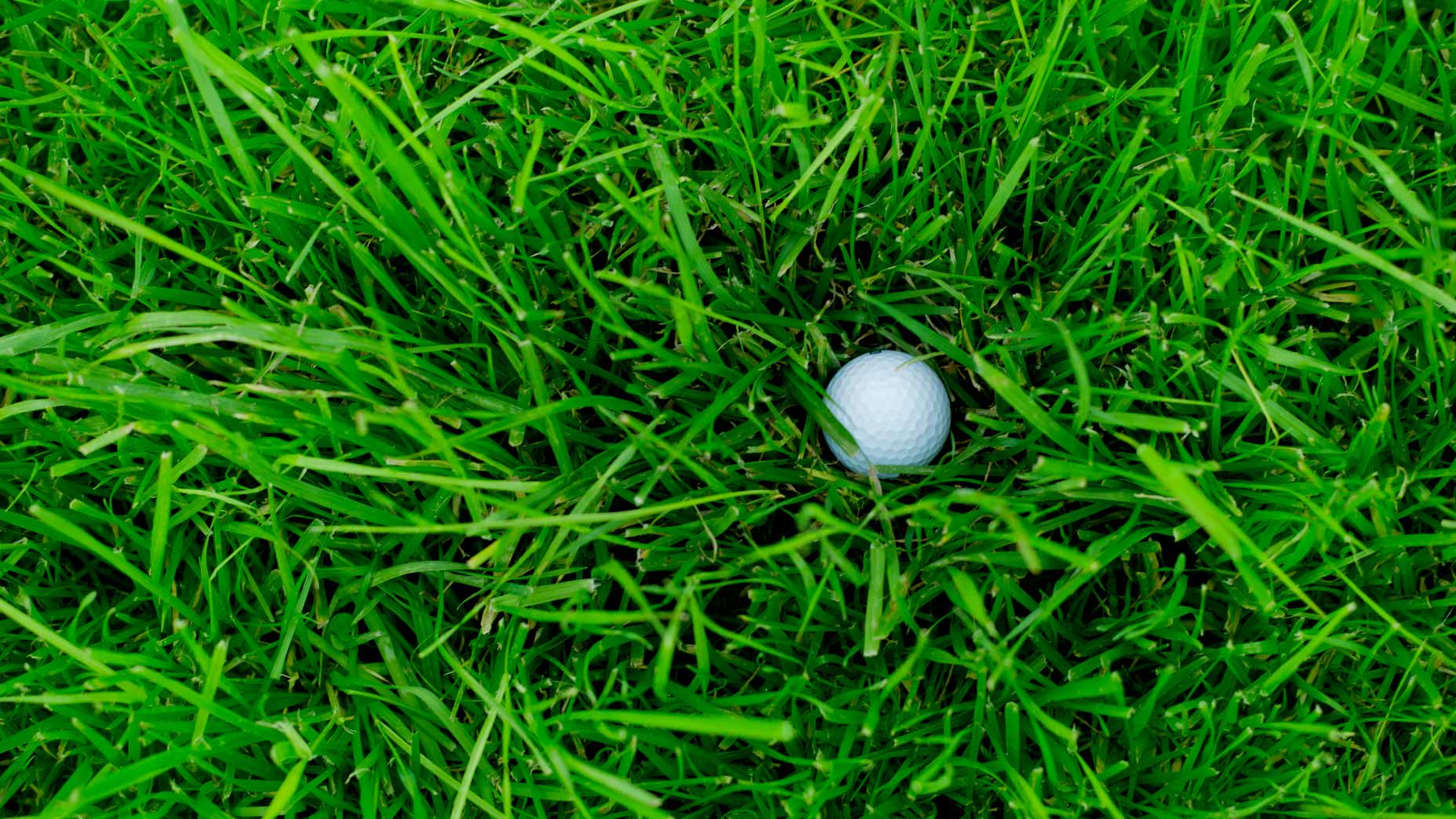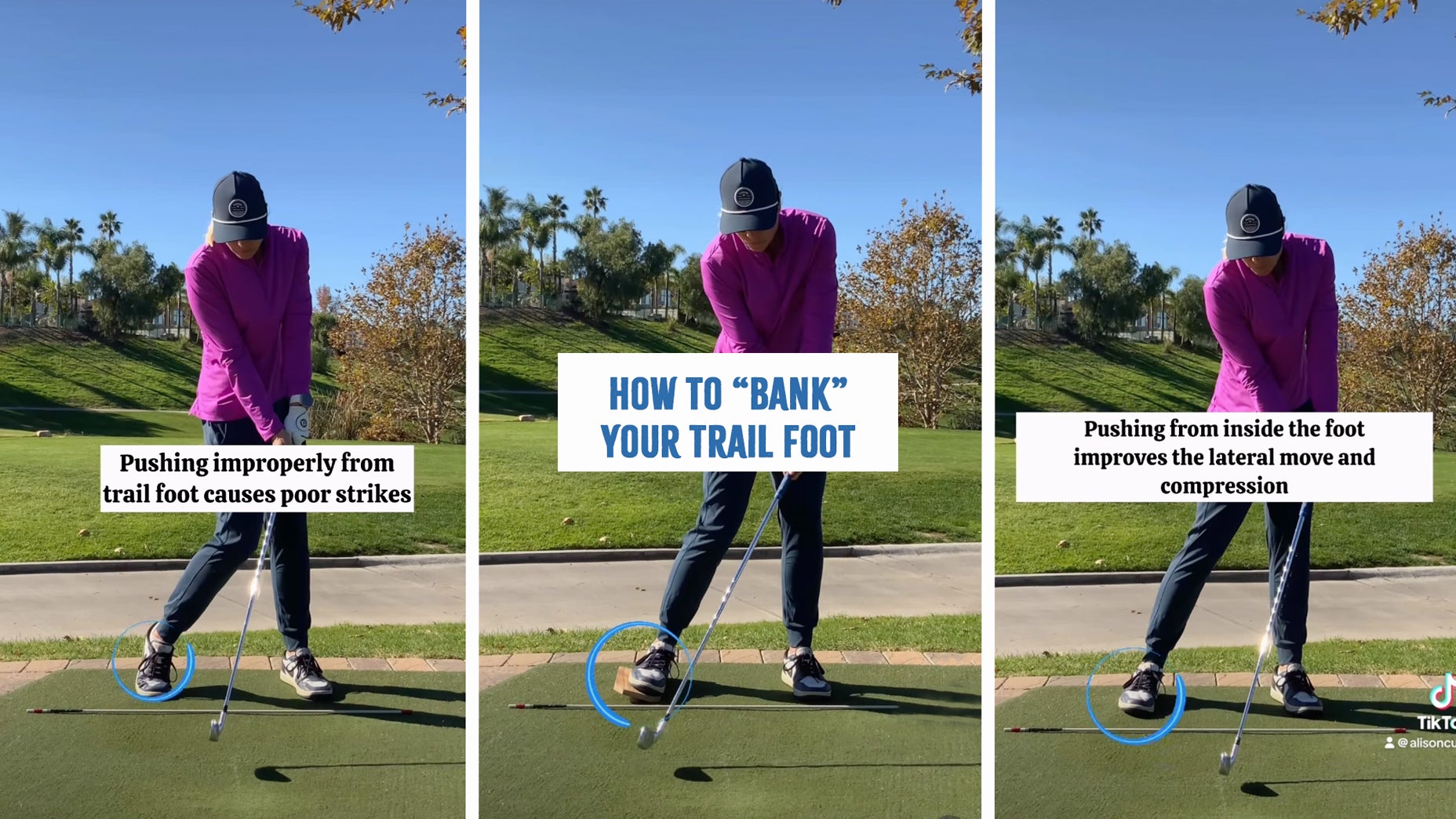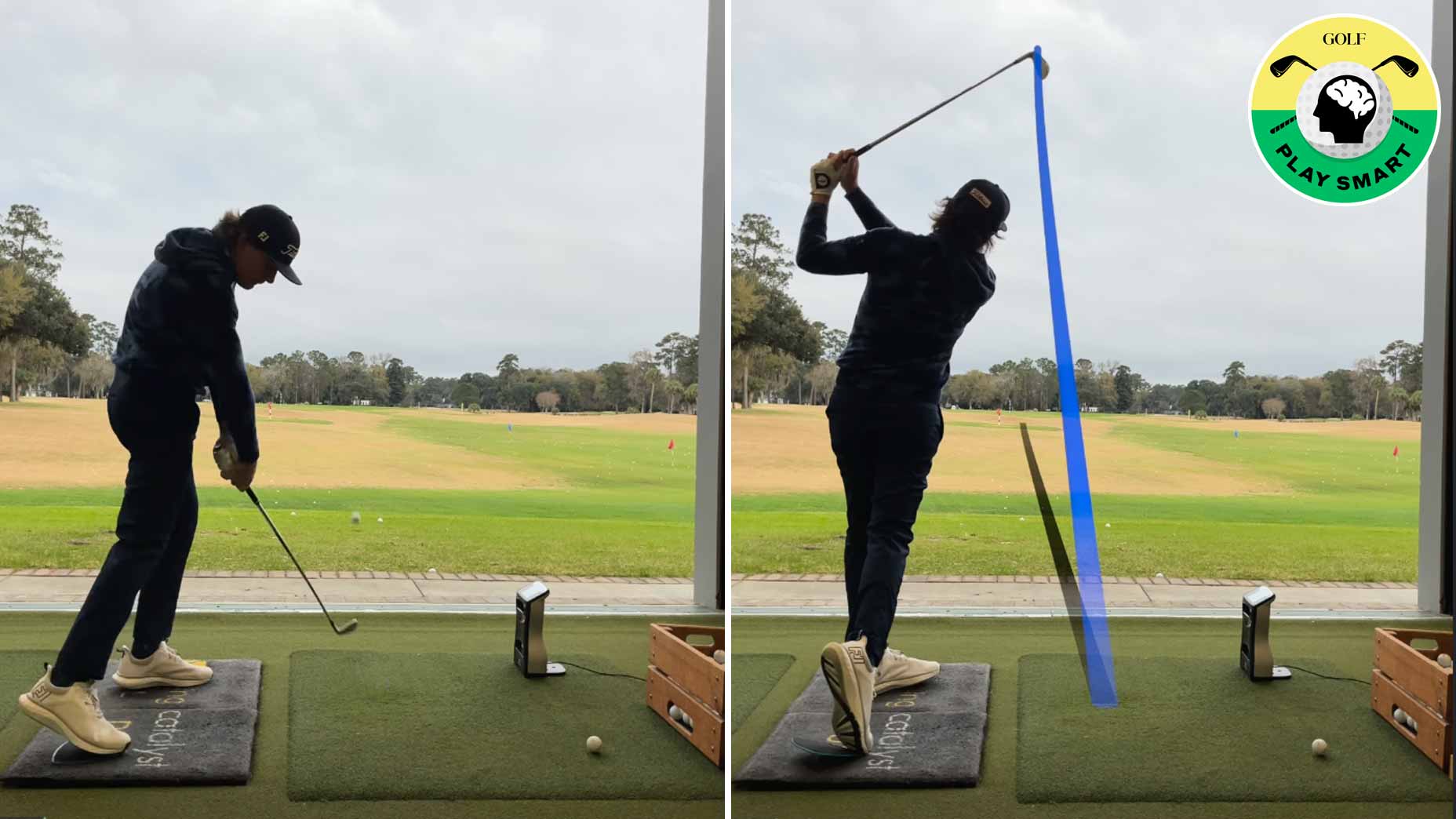A perfectly executed flop shot is a thing of beauty. But it’s also a dangerous option, because you can catch it thin or heavy as easily as you can hit it flush, especially if your technique is rusty.
When I hit flops I always opt for a high-lofted wedge (usually my 588 Rotex II 64-degree model), and grip it with the face slightly open. I position the ball in the middle of my stance, aim slightly left of the target, and make a fuller-than-normal swing. This isn’t complicated. It’s mostly a matter of trust and, of course, practice.
If you’re not hitting at least a dozen flop shots every time you visit the range, your technique is probably not ready for prime time. To know for sure, take the following test: Find a realistic flop-shot situation, something in the 20-yard range that requires you to carry an obstacle and gives you little room between the pin and the green’s edge. You want a situation that looks something like the shot I’m facing in my backyard practice area in the photo on this page. Next, hit four flop shots straight at the pin, then hit four garden-variety pitches to the safest area of the green, alternating between flop and pitch with each ball. After hitting all eight balls, you’ll know which shot more reliably gets you closer to your target. You’ll also know if your flop shot is ready for the course. And there’s one more benefit of this test: It lets you feel the difference between a regular pitch swing and a flop swing, improving your comfort level with the latter.

SOME NOTES ON LOFT
Chances are, you don’t carry a 64-degree wedge, like I do. If that’s true, you’re doing yourself a big disfavor. I’m a huge fan of the 64-degree lobber. Think it’s too much loft? Consider:
• Greens are only getting faster, and unless you can stop shots as quickly as a Tour player can—and how many of us are that good?—you’ll need maximum height to keep the ball from rolling off the green and into trouble.
• Superintendents at Tour venues are being pressured to keep greens in better shape. To protect the putting surface, they’re tucking pins near the edge more and more often. It’s just a matter of time before this trend reaches your course. Your best defense? Pin-seeking shots that fly higher and land softer.
Hey, these are just the facts. So arm yourself. Higher wedge lofts can help your game, as I proved three decades ago by introducing 60-degree wedges. We all want higher pitches with less effort. Give a 64-degree wedge a shot. It’ll save you strokes for years to come.
For more news that golfers everywhere are talking about, follow @golf_com on Twitter, like us on Facebook, and subscribe to our YouTube video channel.






